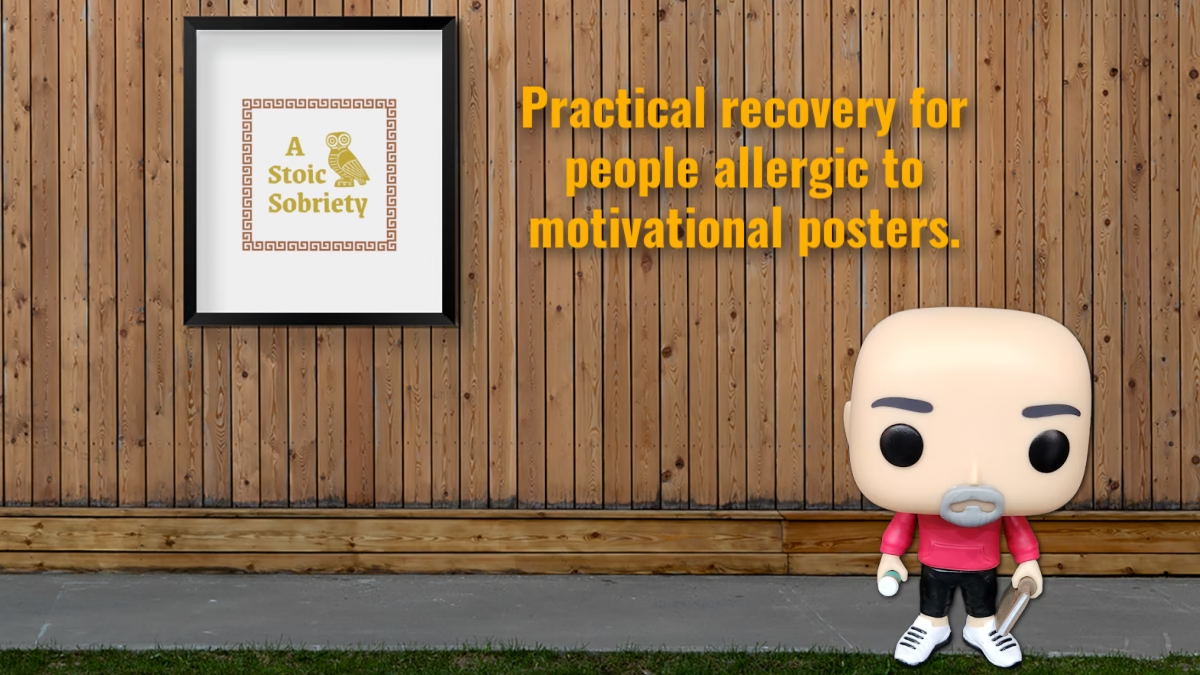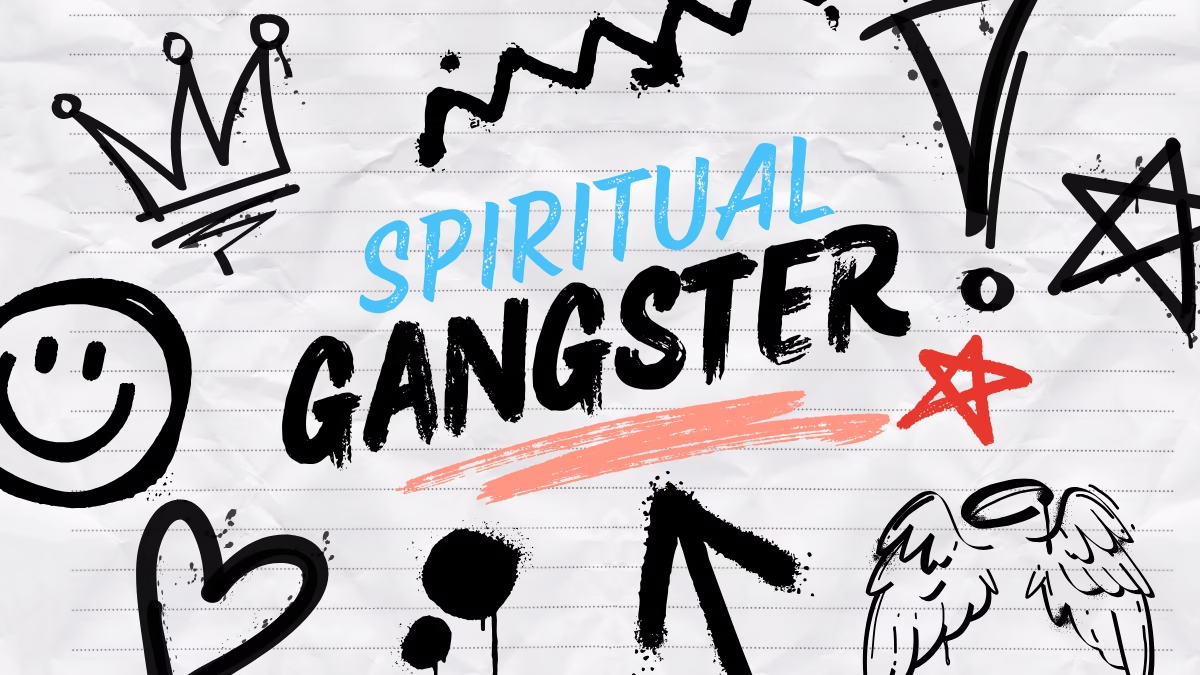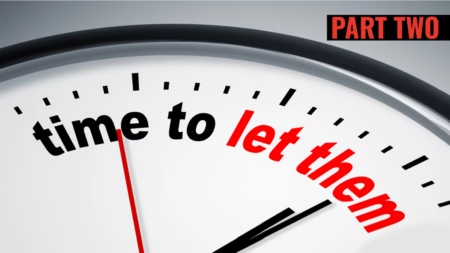
Step 9 builds on the hard work you completed in Step 8. Did you feel any relief in creating your list, or did you see the list and start becoming anxious about moving to Step 9? Hopefully, the effort you put into becoming willing to make amends helped alleviate some of the anxiety. We still know this step is one of recovery’s most challenging yet liberating steps. It reads: “Made direct amends to such people wherever possible, except when to do so would injure them or others.”
We have our list and are willing to act, so now it’s time to make things right. The Stoic emperor Marcus Aurelius puts it succinctly: “Waste no more time arguing about what a good man should be. Be one.” This, of course, applies to becoming a good woman as well.
The Stoic philosophers taught us that we alone are responsible for our actions. Blaming others or external circumstances for our mistakes is not the path to becoming a better person. Marcus Aurelius often reminded himself that he was responsible for his choices, no matter what happened around him.
By taking the 9th Step, we confront our past, acknowledge our mistakes and actively seek to repair the damage we’ve done. This process is about saying “I’m sorry” and demonstrating our commitment to change through meaningful actions.
As Bill Wilson, co-founder of AA, wrote in “Twelve Steps and Twelve Traditions” on the 9th Step: “A remorseful mumbling that we are sorry won’t fit the bill. We ought to sit down with the family, explain the situation, and make restitution if we can.”
In the quote above, we can substitute “family” with anyone on our list, and the intent remains the same. These words remind us that making amends is more than just words; it’s about taking responsibility and genuinely making an effort to set things right.
The Meaning of Making Amends
Simply put, we do our part to repair the damage we’ve caused to others through our actions, words or behavior. This involves more than apologizing; it requires us to address the harm we’ve done in a way that helps restore trust and rebuild relationships.
There are two categories that most amends fall into:
1. Direct Amends: When we sit face-to-face in a conversation with someone we have wronged, we are making direct amends. In the conversation, we acknowledge our wrongdoing and attempt to make things right, such as paying back the money we’ve borrowed, repairing something we’ve broken, or offering sincere apologies for hurtful behavior.
2. Indirect Amends: Sometimes, taking this action isn’t possible or appropriate, such as when it might cause further harm or distress to others. In these cases, we make indirect amends by living differently, showing through our actions that we have changed and are committed to being better.
Another means of indirect amends is writing a letter outlining our wrongs. This can be especially helpful for those close to us who have died before we had a chance to rectify our actions. Living differently is undoubtedly essential, but by itself, it can leave us feeling incomplete.
Bill Wilson emphasized the importance of being sincere and thoughtful, writing: “Good judgment, a careful sense of timing, courage, and prudence — these qualities we shall need when we take Step Nine.”
Why Step 9 Is Important
The 9th Step is our final step to clear away the wreckage of the past. We may revisit the step, but here we do our best to shed all our baggage. By taking responsibility for our actions, we free ourselves of shame and guilt, restore relationships, and heal the wounds we’ve caused in others and ourselves.
The Stoic Epictetus foreshadowed the AA approach by focusing on learning from errors and seeking to improve one’s character rather than dwelling on guilt or shame. He taught that once we recognize our mistakes, we should work to correct them without excessive self-criticism but with a focus on betterment.
Bill Wilson explained this process beautifully: “The spiritual axiom referred to in the Ninth Step is that every time we are disturbed, no matter what the cause, there is something wrong with us.” This is consistent with the Stoic concept of “dichotomy of control,” where we acknowledge that the only thing we can control is ourselves.
If we do not take this step seriously — by skipping it or putting forth half measures — we allow guilt and shame to lurk, giving the cunning, baffling and powerful disease of alcohol fuel for a possible relapse. The importance of this step for long-term sobriety cannot be overstated.
How to Approach Making Amends in Step 9
Making amends can be daunting, but approaching this step with honesty, humility and a sincere desire to change is crucial. Here are some practical tips for taking this step:
1. Be honest and specific: Honesty is a cornerstone of AA, and we must be open and honest about the harm we caused. There is no room for indirect or half-hearted apologies. Instead, be specific about our actions, how they affected others, and why we are committed to making things right.
Example: Instead of saying, “I’m sorry for everything,” you could say, “I recognize that my behavior hurt you, and I deeply regret how I treated you. I want to make it right and rebuild our relationship.”
2. Avoid defensiveness or excuses: It’s natural to want to defend ourselves or justify our actions, but the 9th Step requires us to take full responsibility for the harm we’ve caused. This means listening to others without arguing, making excuses or blaming others for our behavior.
3. Be prepared for any response: As much as we hope for positive responses as a result of our making amends, it is not always rainbows and ice cream. Some people might be angry, hurt or unwilling to forgive. As a reminder, the goal of Step 9 is not to receive forgiveness, but to take responsibility for your actions. As Bill Wilson put it: “We should be sensible, tactful, considerate, and humble without being servile or scraping.”
4. Act, but respect boundaries: In some cases, making direct amends might not be possible or appropriate, especially if it would cause more harm or pain. For example, if our actions would disrupt someone’s life or reopen old wounds, it’s better to focus on making indirect amends by changing our behavior and living a life that reflects our newfound values.
Overcoming Common Obstacles in the 9th Step
Many people struggle with Step 9 because it requires courage, vulnerability and humility. The Stoic philosopher Seneca reminds us, “He who is brave is free.” Be brave, my friend, as there are definite ewards on the other side of action. Here are some common obstacles and how to overcome them:
1. Fear of rejection or anger: It’s normal to fear how others might react to your amends. We might worry they will reject us, become angry, or bring up painful memories. However, remember that Step 9 is about your willingness to make things right, regardless of the outcome. As Bill Wilson wrote: “The readiness to take the full consequences of our past acts, and to take responsibility for the well-being of others at the same time, is the very spirit of Step 9.”
2. Guilt and shame: Confronting the harm we’ve caused can stir up guilt and shame. It’s essential to remember that Step 9 is not about punishing ourselves but about taking responsibility and making amends in a way that promotes healing. This process transforms our guilt into a positive force for change.
3. Resentment: We might still resent someone on our list. We might hold on to the belief that they had equal or more fault in a situation. We need to overcome these feelings to do the work. Even if we do not fully resolve them before making amends, we need to set them aside while doing the work. Our goal in Step 9 is to rectify the situation, not to assign blame.
The Impact of Making Amends
While it has been an emotional and at times arduous journey to completing Step 9, the payoff is enormous. The step can be one of the most transformative experiences in our recovery journey. We rebuild trust, restore relationships and create a sense of inner peace by taking responsibility for our actions and making things right.
For me, the most significant impact of completing Step 9 was releasing guilt and resentment. By addressing the harm we’ve caused, we free ourselves from the heavy burden of guilt and resentment. This allows us to move forward with a lighter heart and a clearer mind.
The healing of relationships is also a key benefit. Although not all of our 9th Step work may have been well-received, some bridges were likely repaired, which opened the path to additional healing. Taking responsibility is the first step toward healing, even if it does not occur immediately. I have experienced poorly received attempts, only to have the person reach out later after processing the encounter and express their appreciation for my actions.
Finally, working Step 9 reinforces the principles we want to practice daily. Honesty, courage, humility and accountability are the principles good people live by, and if we are not there yet, we are squarely on the path to walk amongst them.
Carrying Step 9 Forward
Step 9 asks us to face the past with courage and humility. Making amends isn’t just about repairing relationships — it’s about demonstrating our commitment to living differently.
The Stoics didn’t call it a “step,” but they lived the same truth: admit mistakes, take responsibility and act with justice. That’s virtue in action.
As Bill Wilson said, willingness here “separates the professionals from the amateurs.” Step 9 is where we demonstrate our readiness to grow, heal and live with integrity and compassion.

12-Step STOICISM SERIES by Tony Harte:
- Finding Power in Powerlessness: Step 1 and Stoicism
- Finding a Higher Power & Stoic Wisdom | Step Two
- Step 3: Surrender, Stoicism & Your Higher Power in Recovery
- Step 4: Moral Inventory & Stoic Wisdom for Recovery
- Step 5 Guide: Admitting Wrongs & Finding Freedom
- AA Step 6: A Guide to Willingness and Change
- AA Step 7 Explained: The Power of Humility in Recovery
- Step 8: A Path to Healing and Accountability
- How Step 9 in AA Helps You Release Guilt, Build Trust and Find Peace
- AA Step 10: Maintaining Sobriety and Personal Growth
- Step 11: Deepening Spiritual Growth in Recovery
- Step 12 and the Stoic Connection: Finding Purpose in Recovery

A STOIC SOBRIETY: Welcome to A Stoic Sobriety. I am Tony Harte, and I believe that Empowering Recovery with Stoic Wisdom is the game-changer you’ve been looking for.
With over 36 years of continuous sobriety (since 1989) and professional experience in addiction treatment, I know that recovery isn’t just about quitting—it’s about evolving.
Here, we combine the tried-and-true approaches of the AA 12-Step Program with the ancient, logical wisdom of Stoicism. Whether you are an agnostic, a believer, or simply seeking strength, let’s embark on this path of enlightenment together.

MOVIE NIGHT WITH THE SOBER CURATOR: 🎬 Movie Review: When Love Is Not Enough: The Lois Wilson Story (2010)

SPIRITUAL GANGSTER: at The Sober Curator is a haven for those embracing sobriety with a healthy dose of spiritual sass. This space invites you to dive into meditation, astrology, intentional living, philosophy, and personal reflection—all while keeping your feet (and your sobriety) firmly on the ground. Whether you’re exploring new spiritual practices or deepening an existing one, Spiritual Gangster offers inspiration, insight, and a community that blends mindful living with alcohol-free fun.

Resources Are Available
If you or someone you know is experiencing difficulties surrounding alcoholism, addiction, or mental illness, please reach out and ask for help. People everywhere can and want to help; you just have to know where to look. And continue to look until you find what works for you. Click here for a list of regional and national resources.






